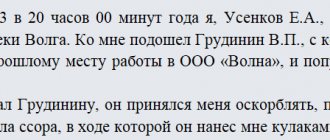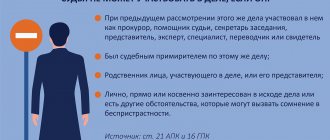The first justices of the peace in the Russian Empire appeared as a result of judicial reform under Alexander II. This institute was created to consider minor criminal and civil cases, with claims not exceeding 500 rubles. Justices of the peace were not appointed, but elected. It is interesting that the priority was not their education, but personal and human qualities, respect by the population, and authority in society. A fairly simple and accessible procedure for considering cases was created.
Justices of the peace were supposed to be as close to the people as possible. Unlike other courts, the magistrate had to respond not only to written statements and complaints, but also to oral ones, and could consider cases directly at the scene of the incident.
All formalities were kept to a minimum, no fees or stamp papers were paid. Solutions were simply written down in a book specially designed for this purpose. World justice existed in this form for 25 years and was abolished.
Subsequently, there were short-term attempts to revive it. Until finally, on December 17, 1998, the Federal Law “On Magistrates in the Russian Federation” was adopted, which to this day regulates the activities of magistrates’ courts.
Magistrates' courts are the first lower courts in the system of courts of general jurisdiction. The justice of the peace considers cases submitted to him only individually.
What issues are being addressed?
Magistrates consider the following categories of cases:
- Criminal proceedings.
- Civil cases.
- Cases of administrative offenses.
Each category of cases is provided for by the relevant code. The list of criminal cases under consideration is provided for in Article 31 of the Code of Criminal Procedure of the Russian Federation, civil cases in Article 23 of the Civil Procedure Code of the Russian Federation, and administrative offenses in Article 23.1 of the Code of Administrative Offenses of the Russian Federation.
In civil proceedings
Let us dwell in more detail on each point of jurisdiction.
A court order is a simplified form of resolving a civil case without trial based on the applicant’s demands, which is indisputable in nature. The requirements for which a court order is issued are described in Article 122 of the Code of Civil Procedure of the Russian Federation.
Note! The only basis for canceling a court order is the debtor’s return to the claimant’s demands.
- Divorce of marriage is considered by a magistrate, provided that there is no dispute between the spouses about the upbringing and place of residence of minor children.
- Cases regarding the division of jointly acquired property between spouses are considered by a magistrate only if the price of the claim (the value of the property) does not exceed 50,000 rubles. The division of spouses' property can be carried out both during the marriage and in the event of divorce.
- The magistrate considers property disputes taking into account the cost of the claim, which should not exceed 50,000 rubles. These include claims for debt collection under executed business contracts, ownership of property, and others subject to assessment.
- Property disputes to protect consumer rights.
The price of this claim, unlike other property disputes, is one hundred thousand rubles.
What is considered in criminal trials and under the Code of Administrative Offenses of the Russian Federation?
The competence of the magistrate includes the consideration of criminal cases, the punishment for which is provided in the form of imprisonment for no more than three years. This is a fairly large number of crimes, but part 1 of Article 31 of the Code of Criminal Procedure of the Russian Federation contains exceptions from the list of crimes.
More often, cases of private prosecution are considered, which are initiated upon application directly to the magistrate of the victim or his legal representative, such as:
- beatings;
- slander;
- insult.
Regardless of the sanction, cases of criminal offenses are considered by a district or city court, such as:
- murder by negligence;
- exceeding the limits of necessary defense;
- lewd acts and so on.
In addition, magistrates hear many cases of administrative offenses. This is a fairly large number of offenses included in the Code of Administrative Offenses of the Russian Federation. The most common cases are:
- citizens being drunk in public places;
- petty theft;
- traffic violations;
- violations of trade rules.
Criminal trials
Recently, a decision on decriminalization has been in effect on the territory of the Russian Federation. This is associated with an increase in the consideration of crimes of a criminal nature in magistrates' courts. His competence in the field of criminal cases includes the following acts:
- public insult and slander;
- rape committed under certain circumstances;
- mild bodily injury;
- beatings;
- voicing a threat to cause harm to health or life;
- harm caused to health due to negligence.
The magistrate's court can consider almost all criminal cases that do not fall into the category of grave or moderately serious unlawful acts.
Have a question for a lawyer? Ask now, call and get a free consultation from leading lawyers in your city. We will answer your questions quickly and try to help with your specific case.
Telephone in Moscow and the Moscow region: +7
Phone in St. Petersburg and Leningrad region: +7
Free hotline throughout Russia: 8 (800) 301-39-20
What are they not doing?
Despite the large volume of cases being considered in accordance with the criminal, civil and administrative codes, there are certain restrictions directly specified in the legislation. Thus, in this instance the following cannot be considered:
- property disputes in which the cost of a claim exceeds fifty thousand rubles, and in cases of consumer rights protection – one hundred thousand rubles;
- divorce cases, if there are minor children in the family and there is a dispute between the parents when deciding on their upbringing and place of residence;
- deprivation of parental rights and adoption of children;
- criminal cases in which the sentence of imprisonment exceeds three years;
- criminal and civil cases, the consideration of which by law directly falls within the competence of district or city courts.
Status Features
So, what do justices of the peace do? The same as their colleagues in other courts of the country, according to their competence: they accept cases for their proceedings and make decisions on them. Thanks to this, they have the same privileges as other judges in terms of immunity (a special procedure for bringing them to criminal and disciplinary liability).
The state provides additional guarantees in the form of the right to retire earlier than the majority of citizens. The salary of Themis's servants is significantly higher than that of many civil servants. True, the difference in the income of members of the judicial corporation is noticeable (80 thousand rubles, instead of 200 thousand rubles per month)
Of course, additional payments are provided for length of service, for qualification class, bonus payments, etc. Actually, this is the main thing that distinguishes a justice of the peace from an ordinary one.
How to determine territorial jurisdiction by address?
To submit an application to the court, it is first necessary to determine the territorial jurisdiction. To do this, it is best to use the State Automated System of the Russian Federation “Justice” service, which allows you to determine the specific area whose judge will consider the application.
- To do this, you need to open the service on the Internet using this link.
- In the “I’m looking” section, click on the circle with the name “magistrate’s precinct”; when it turns blue, go to the next section “Subjects of the Russian Federation”, use the mouse to place the cursor on the arrow, click on it once and a table with the names will open subjects.
- We click on the desired subject, which changes the color fill and appears in the “Subjects of the Russian Federation” window.
- Next, select a locality, place the cursor in this window with the mouse and write the name in Russian, for example, Moscow.
- We move the mouse to the “street” window and type in the name of the street and, of course, the house number. If you do not specify the house number in this field, the message “nothing found for your request” will appear.
- After filling out all the form windows, click on the “find” button.
- If all fields are filled out correctly, the service will display information in the form of a table, which will indicate the number of the court site you need.
How to file an appeal to the Magistrates' Court?
To formalize and submit a claim to the magistrate, you will need to find a sample official statement and draw up your own. It is important to indicate in the application all the factual circumstances of the case, and to attach supporting documents to the document. Each type of claim requires payment of a state fee. The amount of the fee is determined taking into account the provisions of the Tax Code of the Russian Federation.
In the appeal, it is important to indicate the judicial authority and its address. Documents are submitted directly to the office of the magistrate's court. In this case, a mark indicating receipt of the appeal is placed on one copy of the claim. The period for consideration of the appeal is 10 days, after which the case is transferred to the magistrate of a particular area. The official and the area are determined taking into account the person’s registration or residence address.
Where can I see the solution?
The decisions taken by the participants in the trial are served in court against a signature, or sent by mail to their home address. If there is a need for a person who did not take part in the case to familiarize themselves with the decision, it can be found on the official website of the court, where all decisions are posted in the public domain.
- The decision can also be viewed on the Internet on the special resource of the State Antimonopoly Service of the Russian Federation “Justice”, or “Court decisions. RF":
- To do this, you need to enter the name of the court in any search engine and go to its official website.
- In the “Judicial Proceedings” section, a table will appear with a list of cases considered on certain dates. In this list you need to find the desired name; the decision on the case will be in the extreme column on the right.
- You can also find a decision by the name of the plaintiff or defendant, by the case number on the court’s website in the “Search for information on cases” section, where the name or case number is entered in the file that opens, the “find” button is pressed and you can view the results of the consideration.
Organization of activities
In the regions of the country there are departments to support the activities of justices of the peace. They resolve issues of their placement, staffing, remuneration and other tasks. This includes:
- organizing a competition for filling the positions of judges, accepting documents, and submitting them to the legislative assembly;
- search and maintenance of premises in which judges and their staff work;
- hiring secretaries and assistant judges, remuneration for their labor.
Some regions create a full-fledged department or department, while others transfer decisions on the activities of justices of the peace to judicial departments. These are organizations that perform similar tasks in relation to all other courts (both general and arbitration, regardless of the instance)
In Dagestan, for example, the judicial department is responsible for organizing the activities of all judges without exception, while in Sevastopol there is a full-fledged department for ensuring the activities of justices of the peace.
Funds for their activities are formally allocated from the regional budget. The remaining judges are directly financed from the federal budget.
Change of competence in the pending litigation
From October 1, 2022, the legislator changed the jurisdiction of magistrates.
Dispute cases excluded:
- On determining the procedure for using property.
- For family disputes, with the exception of divorces, unless there is a dispute about children and division of property in the amount of up to fifty thousand rubles.
These disputes must be addressed to district and city courts.
During the trial, jurisdiction may change. In case of filing a counterclaim, changing the subject matter or increasing the amount of the claim. In this case, a ruling is made to transfer the case to the district court.
Legislative regulation
In the Russian Federation there is a federal law “On Justices of the Peace”. A similar law has been adopted in the regions of the country. Local acts repeat the provisions of federal law. The differences relate to the procedure for appointing and organizing the activities of judges.
Magistrates are subject to the law “On the Judicial System” and “On the Status of Judges”.
In order to ensure their activities, a number of normative acts - instructions, regulations - were adopted. In particular, instructions on the organization of office work.
Procedural codes (Civil Procedure Code, Arbitration Procedure Code, CAS AND Code of Criminal Procedure) answer the question of what magistrates do.
Sequence of actions after the verdict is overturned
During the review of the case in the appellate instance, a decision is made that confirms the correctness of the magistrate's verdict or its error. Based on the content of this process, the sequence of actions of the citizen is determined. If the applicant's request is granted, no further action needs to be taken.
If the magistrate took the applicant’s side, but this decision was appealed, then it is necessary to file a corresponding application with the cassation authority. If the case under consideration was a civil suit, then the deadline for filing an application for review of the case is one month from the announcement of the verdict.
Requirements for judges
Every area of justice requires new employees who are willing to work to resolve conflicts. In this case, the following requirements are imposed on the judge:
- higher education;
- no criminal record;
- lack of connections with other states;
- capacity;
- absence of any dependence;
- absence of serious illnesses.
A justice of the peace must be over 25 years old and have at least 5 years of work experience. A future law enforcement officer needs an impeccable reputation. Before applying for a job, you must pass an exam and also take a recommendation. If you have more than 5 years of experience, then such procedures are not required.










